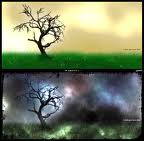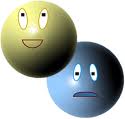The Shocking Cause of
Manic Depression

While the primary cause of manic depression is unknown, there are quite a few factors that contribute to manic depression. Some of these factors are understandable while others are a little shocking.
According to the National Institute of Mental Health, the primary causes are genetic factors and neurological factors. However, there has also been research that suggests that environmental factors can also play a role. This is not shocking but what is shocking to learn is that certain medications can trigger manic depression.
Medication Factors
While antidepressants are common in treating depression, they have an adverse effect on those that are suffering with Bipolar Disorder. In fact, while they are not the cause of manic depression, they can actually make things worse, triggering a manic episode. So, what kind of medication would be used to treat manic depression? Mood stabilizers, such as lithium, are a common, effective treatment for bipolar disorder or manic depression.
There are several other medications that can cause manic episodes such as:

Genetic Factors
Genetics, of course, plays a role not only in manic depression but all kinds of depression. In fact, genetics is the primary cause of manic depression. If you come from a family that has had a history of depression, it is likely something that you will confront as well. Here are some interesting statistics.
Neurological Factors
From a neurological perspective, research has suggested that those with Bipolar Disorder actually have an elevated level of protein in their brain called vesicular monoamine transporters. These proteins help to regulate the neurotransmitters such as serotonin and norepinephrine.
When the neurotransmitters are not being adequately regulated it causes an imbalance which leads to a depressive, manic or combination state of being. These neurotransmitters are the chemical messengers in the brain. Also, brain imaging studies have been done that have revealed the following potential cause of manic depression as well:

Environmental Factors
Environmental factors can be a cause of manic depression as well. Environmental factors include, but are not limited to, the following:
During the spring and summer months, those with Bipolar Disorder are more likely to be manic. Conversely, during fall and winter, depressive episodes are more likely.
If you have manic depression or Bipolar Disorder, you are not alone. There are many famous people with manic depression as well.
After receiving a proper diagnosis and treatment, most have gone on to live very productive, successful lives. A friend of mine has a great site you can go in an effort to learn more about Bipolar Disorder BipolarLives.com. It's packed with great information and can be a great resource for you.
Related Articles
A Test for Manic Depression: Is it possible to test for manic depression?
Cause of Manic Depression to Home Page









